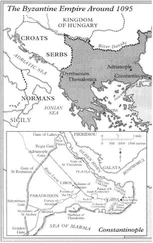Tom Harper - Siege of Heaven
Здесь есть возможность читать онлайн «Tom Harper - Siege of Heaven» весь текст электронной книги совершенно бесплатно (целиком полную версию без сокращений). В некоторых случаях можно слушать аудио, скачать через торрент в формате fb2 и присутствует краткое содержание. Жанр: Исторический детектив, на английском языке. Описание произведения, (предисловие) а так же отзывы посетителей доступны на портале библиотеки ЛибКат.
- Название:Siege of Heaven
- Автор:
- Жанр:
- Год:неизвестен
- ISBN:нет данных
- Рейтинг книги:5 / 5. Голосов: 1
-
Избранное:Добавить в избранное
- Отзывы:
-
Ваша оценка:
- 100
- 1
- 2
- 3
- 4
- 5
Siege of Heaven: краткое содержание, описание и аннотация
Предлагаем к чтению аннотацию, описание, краткое содержание или предисловие (зависит от того, что написал сам автор книги «Siege of Heaven»). Если вы не нашли необходимую информацию о книге — напишите в комментариях, мы постараемся отыскать её.
Siege of Heaven — читать онлайн бесплатно полную книгу (весь текст) целиком
Ниже представлен текст книги, разбитый по страницам. Система сохранения места последней прочитанной страницы, позволяет с удобством читать онлайн бесплатно книгу «Siege of Heaven», без необходимости каждый раз заново искать на чём Вы остановились. Поставьте закладку, и сможете в любой момент перейти на страницу, на которой закончили чтение.
Интервал:
Закладка:
I edged forward to the lip of the depression, keeping low behind the foliage, and peered out between the branches. The three riders had come level with me. They wore neither helmets nor armour, and if they sat uneasily in their saddles it was only from lack of habit. Otherwise, they talked and laughed like men on holiday; as I watched, one even broke into a song.
Hw?r cwom mearg? Hw?r cwom mago? Hw?r cwom ma??umgyfa?
Hw?r cwom symbla gesetu? Hw?r sindon sele-dreamas?
To my astonishment, another voice answered — not among the riders but from the hillside. It picked up the melody and carried it on. Four more voices joined in, and suddenly the valley was awash with the weird sounds of a song it had never heard before.
Eala beorht bune! Eala byrnwiga!
Eala?eodnes?rym! Hu seo?rag gewat,
genap under nihthelm, swa heo no w?re!
Sigurd stepped out onto the road, still singing. It was he who had first answered the song, I realised, and its foreign sound was his native tongue. He stood in front of the riders, and at last I saw what should have been obvious from the start. The men on the horses were almost indistinguishable from the Varangians who swarmed down the hillside to greet them. All had the same rough red skin that came when pale white skin had been alloyed by the sun, and each face was covered by hair the colour of metal: gold, copper and bronze. Some wore it in braids and some tied with twine; some had beards and others were cleanshaven. Otherwise, they could have been brothers.
The lead rider sang the last verse of the song in unison with Sigurd, their eyes locked on each other. A sardonic grin had spread over the rider’s face, while Sigurd’s remained cool and distrustful. When the song was done, they eyed each other cautiously.
‘You should be more careful, riding alone and unarmed in these mountains,’ said Sigurd.
The rider glanced around at the Varangians. ‘Careful of what?’ he asked insouciantly. ‘I heard there was nothing in these hills except peasants and goatherds. And woodcutters,’ he added, looking at the axes we carried. ‘Have you come to sell us firewood?’
‘Or to cut you down to size,’ Sigurd growled. ‘Who are you and what are you doing here? Have you come from Byzantium?’
I could not understand his attitude. If I had been in their far-flung country and met a fellow Greek on the road, I would have rejoiced. Sigurd, by contrast, seemed to take his countryman’s presence as a personal affront. Perhaps it was the way of their people — certainly the riders seemed unworried by it.
‘Varangians?’ He shook his head. ‘We’re just humble sailors with a cargo to sell.’
‘What cargo?’ Apart from a few panniers and blankets tied to their saddles, the Englishmen carried nothing.
The rider crossed his hands in his lap and stared up at the sky, as if trying to remember. ‘Nails. Ropes. Grease and oil. Saws, planes, adzes and augers. Timber.’
Sigurd flushed and lifted his axe angrily. ‘Do not mock me,’ he warned.
The rider remained infuriatingly calm. ‘Everything I described — and more — is sitting on the docks at Jaffa, waiting for someone to buy it. Come and see for yourself.’ He laughed. ‘Saewulf will be happy to see you.’
On a knuckle of land that pressed out into the Mediterranean, flanked by sandy beaches, we found the port of Jaffa. Its western face descended steeply to the sea, so that from below the houses built on it seemed to blend into a single construct of golden stone, red pantiles and wooden balconies. Only when you looked closer did you see that the picture was imperfect. Many of the buildings were missing their roofs; no washing hung from the houses, no children played in the alleys between them, and no guards paced the badly ruined walls. Even the fortress which should have guarded the town was reduced to a single tower.
‘The city is abandoned,’ said Thomas, as we stepped over a fallen arch into the town’s main street.
Sigurd grunted. ‘There are always rats who’ll move in.’
At the foot of the hill, a dock crooked its protective embrace around a small harbour. White foam ruffled the water at its mouth where a thick hawser had been stretched across it, but it had not kept out the six ships that lay moored against the wharf. Stout masts rose from their decks, and their high prows were carved in the likeness of fantastic beasts. One was shaped like a dragon, another like a monstrous fish, while the largest took the form of a ravening wolf.
I knew that ship, had spent long weeks enduring a difficult winter voyage aboard it, cursing its heaving deck and leaky seams. Bobbing at anchor, bathed in June sunshine, she was almost unrecognisable now. As to what she was doing there, I could no more guess than when I had first seen her drawn up on a beach on the dusky Egyptian coast.
We descended to the harbour. A great quantity of crates, sacks and barrels had been piled on the dock, together with some long timbers. In the corner where the harbour walls turned across the bay, an unused sail had been draped over a frame of lashed-together oars to make a rough awning. As we reached the bottom of the hill and stepped out onto the hot stone of the wharf, the figure resting in its shade rose; he did not approach, but stood there waiting, watching while we crossed towards him. The ships’ crews lounged among the cargo, and the smells of salt and alcohol were thick in the air.
Saewulf had not changed much in the six months since we parted on a freezing January day near Antioch. The leather band was still bound across his forehead, tying back his long brown hair; he had shaved off his beard, though perhaps that had to do with the fresh scar that ran livid down his right cheek. Many men would have been disfigured by the wound, or would have hidden it in self-conscious shame. With Saewulf, it was simply one more line among many. He stood with the same cocky posture, his hands thumbed into his belt and his shoulders thrust back, and still watched the world with the same amused detachment I had seen on that beach in Egypt.
In contrast to his easy confidence, we must have seemed an awkward and ill-tempered group. Gathered behind Sigurd, we shuffled to a stop in front of the awning and waited nervously, our gazes darting about our surroundings, while the two captains stood and stared each other in the eye in some sort of unspoken contest. All around, the sailors put down their tools and cups to watch us.
‘I thought I’d got rid of you twenty years ago, when you deserted Byzantium to go back to the ruin of England.’ Sigurd’s words were slow and clear, carrying to every corner of the harbour.
Saewulf shrugged. ‘If you had stayed in Byzantium, you would have kept rid of me.’ His eyes played across the group of Varangians behind Sigurd; he saw me and Aelfric and smiled.
‘At least two of your men already have reason to be grateful to me. And now perhaps I can help you again — unless you came to Jaffa for fish.’ He swept a hand around the harbour. ‘All the fishermen have gone, I’m afraid. But perhaps I can interest you in my cargo.’
‘Why are you here?’ Sigurd stepped closer, looming over his countryman. The Varangians around me put their hands on their axes. ‘Why has a coward like you happened upon this port, five hundred miles from any friendly harbour, with enough supplies to besiege Constantinople? Are you still working for the Normans — or have you whored yourself to someone else since then?’
Saewulf let Sigurd’s outburst break over him like spray from the bow.
‘I work for myself — as I always have.’
‘I’m sure you’re very good at it.’ Sigurd had not backed away.
‘Good enough to see that when a desperate army besieges a city without any trees, they’ll pay well for wood. Unless, as I said, you came for the fish.’ He squinted at us. ‘What did you do with the men I sent to Jerusalem?’
Читать дальшеИнтервал:
Закладка:
Похожие книги на «Siege of Heaven»
Представляем Вашему вниманию похожие книги на «Siege of Heaven» списком для выбора. Мы отобрали схожую по названию и смыслу литературу в надежде предоставить читателям больше вариантов отыскать новые, интересные, ещё непрочитанные произведения.
Обсуждение, отзывы о книге «Siege of Heaven» и просто собственные мнения читателей. Оставьте ваши комментарии, напишите, что Вы думаете о произведении, его смысле или главных героях. Укажите что конкретно понравилось, а что нет, и почему Вы так считаете.










